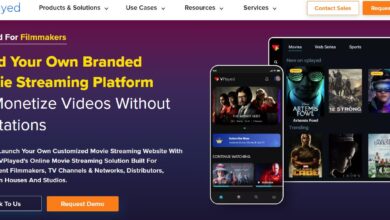Outsourcing Software Development for Insurance Mobile Apps: Benefits and Challenges

The insurance industry is undergoing a significant transformation, largely driven by advancements in technology and the increasing demand for efficient, user-friendly services. One key area of this transformation is insurance mobile app development. With the growing need for mobile solutions that enhance customer experience, insurance companies are increasingly considering outsourcing their software development to specialized firms. While this approach can offer numerous advantages, it also comes with its set of challenges. In this article, we will explore the benefits and challenges of outsourcing software development for insurance mobile apps, providing insights for organizations contemplating this strategy.
The Growing Importance of Insurance Mobile Apps
In today’s fast-paced digital landscape, consumers expect instant access to services and information at their fingertips. For insurance companies, mobile apps provide a platform for customers to manage their policies, file claims, and receive assistance on the go. As a result, investing in insurance mobile app development has become a priority for many firms. However, developing an effective and feature-rich mobile app requires expertise, time, and resources, prompting many companies to look towards outsource software development companies for assistance.
Benefits of Outsourcing Software Development for Insurance Mobile Apps
1. Access to Expertise and Experience
One of the primary advantages of partnering with an outsource software development company is the immediate access to a pool of skilled professionals. These companies often have extensive experience in developing insurance mobile apps and understand industry-specific requirements. Their expertise enables them to implement best practices, leading to higher quality applications that meet regulatory standards and customer expectations.
2. Cost Efficiency
Outsourcing software development can significantly reduce costs for insurance companies. By leveraging the resources of an outsource software development company, firms can avoid the high expenses associated with hiring, training, and maintaining an in-house development team. Additionally, many outsourcing partners operate in regions with lower labor costs, further enhancing overall savings.
3. Faster Time to Market
The insurance industry is competitive, and speed is essential when launching new products and services. By outsourcing mobile app development, companies can accelerate their project timelines. Development firms typically have streamlined processes in place, allowing them to deliver solutions more quickly. This efficiency helps insurance companies meet market demands and capitalize on new opportunities without delay.
4. Focus on Core Business Functions
Outsourcing allows insurance companies to concentrate on their core business functions, such as customer service and product development. By delegating mobile app development to specialized firms, insurance providers can free up their internal resources and focus on strategic initiatives that drive growth. This approach fosters innovation and allows companies to enhance their competitive advantage.
5. Scalability and Flexibility
Outsourcing software development offers the flexibility to scale operations according to project requirements. Insurance companies can easily adjust their engagement with an outsource software development company based on changing needs, whether it involves ramping up development efforts for a major app release or reducing resources during maintenance phases. This adaptability is particularly beneficial in a rapidly evolving industry.
Challenges of Outsourcing Software Development for Insurance Mobile Apps
While there are numerous benefits to outsourcing, it is not without challenges. Insurance companies must navigate potential pitfalls to ensure a successful partnership with external development firms.
1. Communication Barriers
Effective communication is crucial for successful project outcomes. When working with an outsource software development company, companies may face language barriers or time zone differences that can hinder collaboration. Misunderstandings and misalignment on project goals can lead to delays and increased costs. Establishing clear communication channels and regular check-ins can help mitigate these challenges.
2. Quality Control
Outsourcing development raises concerns about maintaining quality standards. Not all outsource software development companies provide the same level of expertise or adhere to industry regulations. Insurance firms must conduct thorough due diligence when selecting a partner and establish clear quality benchmarks. Regular monitoring and feedback loops can help ensure that the final product meets the company’s quality expectations.
3. Security and Compliance Risks
The insurance industry is highly regulated, and mobile apps must comply with various legal and security requirements. When outsourcing, companies must ensure that their partners understand and adhere to these regulations. This includes data protection laws and best practices for securing sensitive customer information. Conducting a comprehensive risk assessment before entering a partnership can help identify potential vulnerabilities and establish protocols for compliance.
4. Cultural Differences
Cultural differences between the insurance company and the outsourcing partner can impact collaboration and project outcomes. Different approaches to work, decision-making, and conflict resolution can create friction in the partnership. Insurance firms should be proactive in understanding the culture of their outsourcing partner and work to foster a collaborative environment that respects diverse perspectives.
5. Dependence on the Vendor
Relying on an outsource software development company can lead to concerns about vendor dependence. If the partner experiences operational issues or goes out of business, it could jeopardize the insurance company’s app development efforts. To mitigate this risk, firms should establish clear exit strategies and consider diversifying their vendor relationships.
Conclusion
Outsourcing software development for insurance mobile apps presents both significant benefits and challenges. By collaborating with an experienced outsource software development company, insurance firms can access expertise, reduce costs, and accelerate their time to market. However, it is essential to navigate potential pitfalls such as communication barriers, quality control, and compliance risks.
For companies looking to harness the power of mobile technology, understanding these dynamics is crucial for making informed decisions. By establishing strong partnerships, setting clear expectations, and maintaining open lines of communication, insurance providers can effectively leverage outsourcing to enhance their mobile app development efforts and deliver exceptional value to their customers.
As the demand for innovative mobile solutions continues to rise, the strategic use of outsourcing will play a pivotal role in shaping the future of insurance mobile app development, positioning companies for success in an increasingly competitive marketplace.




